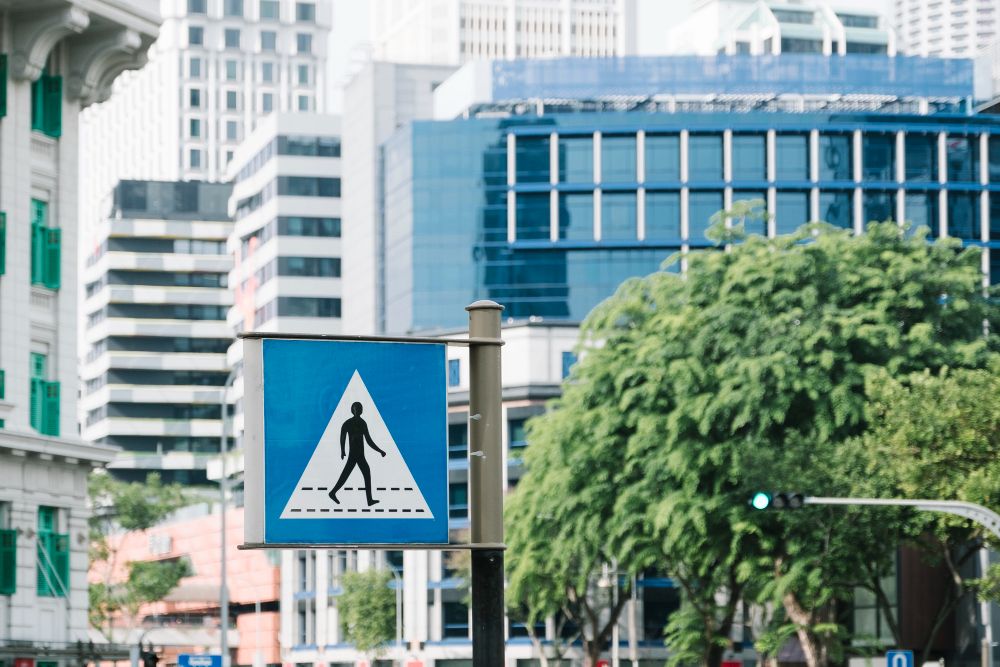

Published on September 11, 2025
Discover what can and cannot be advertised on U.S. billboards, including rules for alcohol, tobacco, cannabis, and gambling ads.
Billboards remain one of the most effective forms of outdoor advertising in the United States. Large, eye-catching, and unavoidable, they can make a huge impact - but not every message is allowed. Advertising restrictions on billboards are regulated by federal law, state law, industry codes, and even private contracts with landlords and billboard operators. If you’re planning a billboard campaign, here’s what you need to know to stay compliant with billboard restrictions.
Cigarettes and smokeless tobacco are prohibited nationwide on billboards. This restriction originates from the 1998 Master Settlement Agreement (MSA), which prevents all outdoor advertising for tobacco products, including billboards and transit signs. Tobacco advertising on billboards is considered one of the strictest advertising restrictions in the United States.
Key points:
Source: Master Settlement Agreement, Section III(c)
Advertising alcohol on billboards is allowed, but strict regulations apply under federal and state law. Alcohol billboard ads are among the most regulated forms of billboard advertising due to legal and placement rules.
Federal rules include:
State restrictions:
Tip: Always check local placement restrictions before running alcohol billboard ads.
Sources: 27 U.S.C. § 205(f), 27 CFR Part 5
Cannabis remains illegal under federal law (21 U.S.C. § 812), so billboard advertising is subject to state-level advertising restrictions.
Example: California
Most other states with legalized cannabis adopt similar billboard restrictions, so compliance requires checking state-specific cannabis advertising laws.
Source: California Business & Professions Code § 26152(d)
There is no federal ban on gambling billboards, but regulations exist at the state level. These advertising restrictions often include responsible messaging and location rules.
Examples of restrictions:
States such as Nevada and New Jersey have some of the strictest rules for billboard gambling advertising.
Source: 18 U.S.C. § 1304
All billboard content, even for products outside tobacco, alcohol, cannabis, or gambling, must comply with the Federal Trade Commission Act (15 U.S.C. § 45). These advertising restrictions ensure that all ads are truthful and not misleading.
Requirements:
Source: 15 U.S.C. § 45(a)(1)
Even if your ad is legal, the landlord or billboard owner can reject it. These billboard restrictions vary by site and contract.
Common restrictions include:
Most large billboard companies are members of the Out of Home Advertising (https://staging.billboardsamerica.com/out-of-home-advertising) Association of America (OAAA), which sets industry standards beyond legal requirements. Their Code ensures compliance with advertising restrictions and billboard restrictions for sensitive categories.
Key commitments:
Source: OAAA Code of Industry Principles
Before launching your campaign, ensure your ad meets these three checks to comply with advertising restrictions:
Following these three steps ensures your ad is safe, legal, and effective, avoiding penalties for violating billboard restrictions (https://staging.billboardsamerica.com/billboard-types).
Q: Can you advertise alcohol on billboards?
A: Yes, but it must follow federal rules and state placement restrictions. Alcohol billboard ads require careful compliance.
Q: Are tobacco ads allowed on billboards?
A: No. Nationwide ban under the 1998 Master Settlement Agreement. Tobacco advertising is prohibited on all billboards.
Q: Can cannabis businesses advertise?
A: Depends on the state. Ads often cannot be near schools or youth centers.
Q: Is gambling advertising allowed?
A: Yes, but with disclaimers and placement rules at the state level.
Q: Are political ads allowed?
A: Yes, but disclosure of who paid for the ad is required, and landlords can restrict them.
Q: Can landlords reject ads?
A: Yes. Contracts may include competitor bans, category bans, or special restrictions.
Q: What industry body sets billboard standards?
A: The OAAA sets voluntary industry standards through its Code of Principles.

Or
